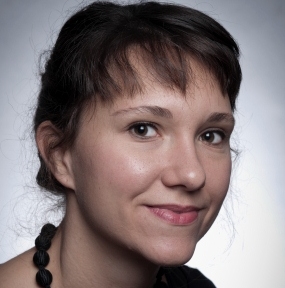Sarah Widmer
Sarah WidmerCV
Research Interests:Smartphone, location-aware and context-aware computing, information and communication technologies, information society, urban studies, urban mobilities, public space.
Phd research :Under the direction of Prof. F. Klauser : |  |
Smart mobilities? Smartphone-mediated navigations in New York City
Looking up your route on a map, consulting the trains’ schedule to Geneva, checking a restaurant’s availabilities in order to book a table, these are all day-to-day tasks that increasingly involve the use of different smartphone "apps" (software which can be downloaded and run on smartphones). The extent of the information we can access through these technologies seems almost infinite and, sometimes, Apple’s slogan of "There’s an app for that" doesn’t seem too far from reality. Software mediates a large part of our daily activities, including our relationships to space. For example, smartphone apps allow us to plan our travels and to manage the "unknown" which we sometimes have to deal with when we navigate through urban space.
For my PhD thesis, I am interested in applications which allow the user to organize his/her mobility and which assist him/her in making decisions on which places to go to. At a time when computing technologies are increasingly becoming a part of our daily lives and routines, my PhD dissertation investigates how these “apps” mediate our relationships to space. The main goal of my PhD research is thus to explore this “mediation” and to understand how those apps impact the spatial knowledge, practices and competence of their users.
In this research, I particularly focus on the use of “smart” apps, which are endowed with sensorial and analytical capabilities and can adapt to their environment. Those apps continually adjust their informational content to their users’ routines, preferences and needs, as well as to the context in which they are used (location, time of day etc.). The displayed information is, thus, filtered according to what algorithms consider relevant to the specific context or to the user’s profile.
This filtering of information by computer algorithms is precisely what my PhD dissertation attempts to question. What is at stake when those filtering processes shape the visibility or invisibility of the information we use to make sense of our surroundings? How is this targeted content interpreted and enacted? And what does this mean for the users’ experience of “urbanity”? By addressing these questions, my research aims to problematize the socio-spatial implications raised by the use of these new technologies; it also aims to disclose the novel territorialities resulting from these uses.
To meet these objectives, this research uses a qualitative methodology, based on in-depth semi-structured interviews conducted with smartphone’s users in New York City. In addition, interviews with apps developers have also been conducted in order to understand how computer code is produced.



